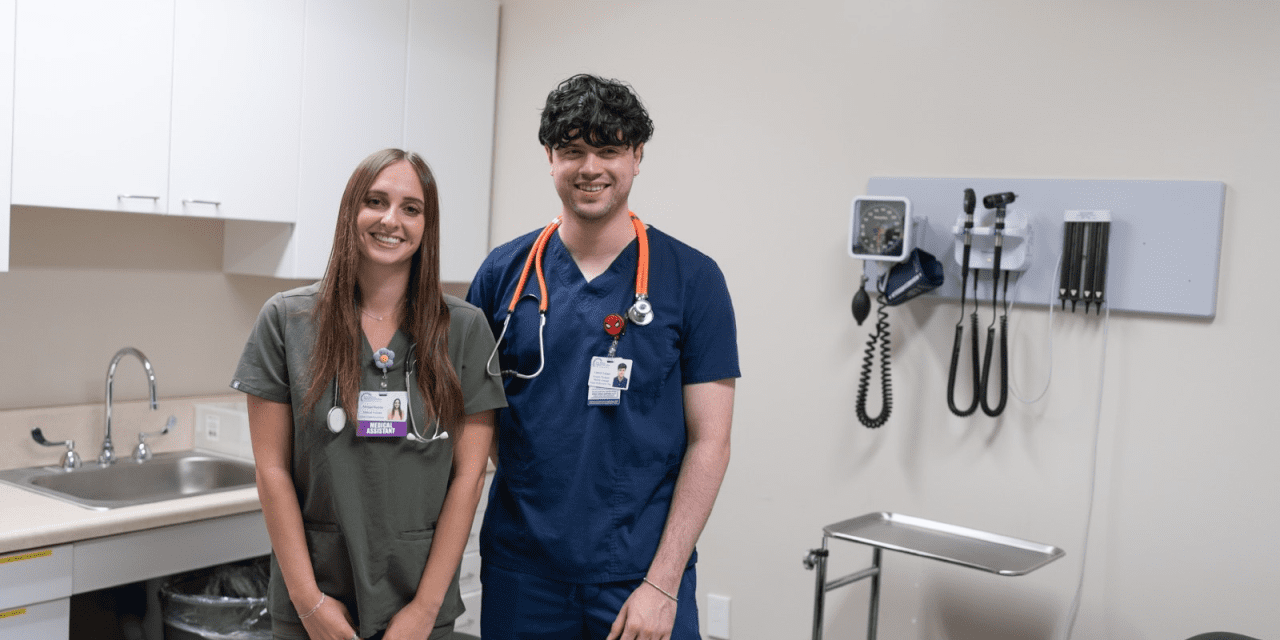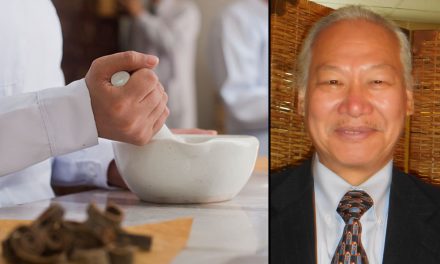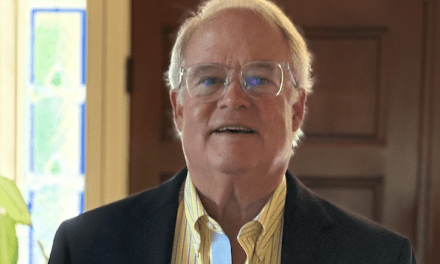Santa Barbara Neighborhood Clinics’ teams with physician’s assistance program to train med students
The A.T. Still University Central Coast Physician Assistant (CCPA) program has two incoming students at Santa Barbara Neighborhood Clinics. (SBNC). The program seeks students who align with their mission and whose personal goals include serving diverse medically underserved populations and who are professional, culturally humble, and have a desire to serve these communities. Applicants who are first-generation college students will also be given special consideration in the review process.
Gabriel Estrada has gained firsthand medical experience as a medical assistant at Santa Barbara Neighborhood Clinics for three years. The UCSB graduate earned a degree in biological sciences in 2022. He learned that SBNC had become affiliated with the A.T. Still CCPA program and believed that, for him, the PA route was preferable to medical school.
“PAs collaborate much more with other healthcare workers as part of a medical team than physicians, and that team approach appealed to me,” Estrada said. “I also appreciate the program’s mission to work with vulnerable populations.”
Estrada, 25, grew up in Lake Los Angeles outside of Lancaster and feels a real connection to SBNC. “This clinic reminds me of where I grew up,” he said. “I enjoy working with kids, adults, seniors and I get to speak Spanish…I like helping those who need it the most.”
A.T. Still University (ATSU) has partnered with the National Association of Community Health Centers (NACHC) to develop the Central Coast Physician Assistant (CCPA) program. The goal is to educate community-oriented physician assistants who will provide “whole-person” primary care to our nation’s underserved communities. The program requires a minimum of 1,000 hours of medical work prior to starting the program.
Morgan Bienias, another incoming student in the ATSU program and medical assistant at SBNC, agrees that the community health care model is ideal for her. “The nature of the communities we serve attracts the kinds of providers and personalities I’m drawn to which makes the work environment much more positive and meaningful,” she said. “The PA program is a perfect match for me.”
Bienias, a 24-year-old from Corona, California, and a biology graduate from Westmont has also been working as an MA at SBNC for the past year.
Dr Mahdi Ashrafian, Santa Barbara Neighborhood Clinics CEO, established the PA program because he wanted to create growth opportunities within SBNC for the staff. “These employees are now able to move up the ladder in their career as well as improving both their professional life and their finances,” said Ashrafian. “The program provides a pipeline for entry-level positions and demonstrates to them that they can come work here for couple of years and we will support them to further their careers.”
The CCPA program is a 24-month Master’s degree program based in Santa Maria. Students spend one year on campus in Santa Maria for the academic phase of the program, and then students will enter the clinical phase, including 35 weeks of supervised clinical practice experiences in various medical centers and hospitals in the US. This includes six clinical rotations covering internal medicine, pediatrics, psychology, family medicine, surgery, OBGYN — each rotation is approximately six weeks and could be various health care locations, most likely in Santa Barbara County for Estrada and Bienias.
Students will spend at least one portion of their clinical year at a Community Health Center (CHC) to fulfill the goal of producing PAs who enter the CHC system and will provide primary care.
Both Estrada and Bienias hope they can eventually return to work at Santa Barbara Neighborhood Clinics and work inpediatric care.





